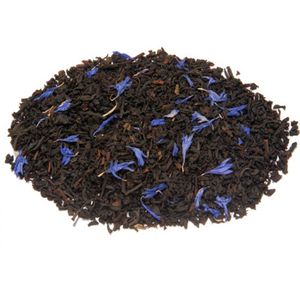상품 상세 정보
Ethiopian Coffee
Our coffee was discovered by Kaldi, an Abyssinian goat herder from Kaffa, while herding his goats through a highland area near a monastery. He noticed that they were behaving very strangely that day, and had begun to jump around in an excited manner, bleating loudly and practically dancing on their hind legs. He found that the source of the excitement was a small shrub with bright red berries. Curiosity took hold and he tried the berries for himself.
Like his goats, Kaldi felt the energizing effects of the coffee cherries. After filling his pockets with the red berries, he rushed home to his wife, and she advised him to go to the nearby monastery in order to share these "heaven-sent" berries with the monks there.
Upon arrival at the monastery, Kaldi's coffee beans were not greeted with elation, but with disdain. One monk called Kaldi's bounty "the Devil's work" and tossed it into a fire. However the aroma of the roasting beans was enough to make the monks give this novelty a second chance. They removed the coffee beans from the fire, crushed them to put out the glowing embers, and covered them with hot water in an ewer in order to preserve them.
All the monks in the monastery smelled the aroma of the coffee and came to try it out. Much like the tea-drinking Buddhist monks of China and Japan, these monks found that coffee's uplifting effects were beneficial in keeping them awake during their spiritual practice (in this case, prayer and holy devotions). They vowed that from then on they would drink this newfound beverage each day as an aid to their religious devotions.
We only source our organic coffee with scores 80 and up and it is really special coffee berry flavour. We roast our coffee until it has a very fresh look and feel.
We can roast and package 1000kgs of coffee every 20 days as it stands. We roast fresh in small batches.
기본 정보
이름
COFFEE FROM ETHIOPIA
상품
생원두
원산지
에티오피아
생산량
50,000 /
수출량
15,000 /
상세 정보
12%
Carton Box (20kg), Carton Box (12kg), Carton Box (6kg), Carton Box (3kg)
Large, Medium, Small
Ethiopia Lekempti
Fruity
Unwashed, Roasted
Grade 1 (SCAA: Specialty Grade)
Dark Brown
Ground - Fine, Ground - Medium, Ground, Whole Beans
Single Origin
Organic
판매자 정보

비즈니스 유형
국가

남아프리카공화국
설립 연도
2019
직원 수
연 매출
수출 경험 여부
Yes
창고 소유 여부
Yes
수출 히스토리
Asia, Europe
관련 시장 데이터
이 판매자의 다른 상품

COFFEE FROM HONDURAS · 온두라스
Variety: Arabica | Processed Style: Roasted | Form & Cut: Powder, Ground - Medium, Ground - Medium Coarse, Ground, Whole Beans | Cultivation Type: Organic | Packaging Type: Carton Box (20kg), Carton Box (15kg), Carton Box (12kg), Carton Box (6kg), Carton Box (3kg) | Color: Brown | Grade: Grade 1 (SCAA: Specialty Grade) | Type: Single Origin | Size: Medium | Flavor Note: Medium Body, Caramel, Fruity, Nutty
'쿠키 허용'을 클릭하면 통계 및 개인 선호도 산출을 위한 쿠키 제공에 동의하게 됩니다.
개인정보 보호정책에서 쿠키에 대한 자세한 내용을 확인할 수 있습니다.








